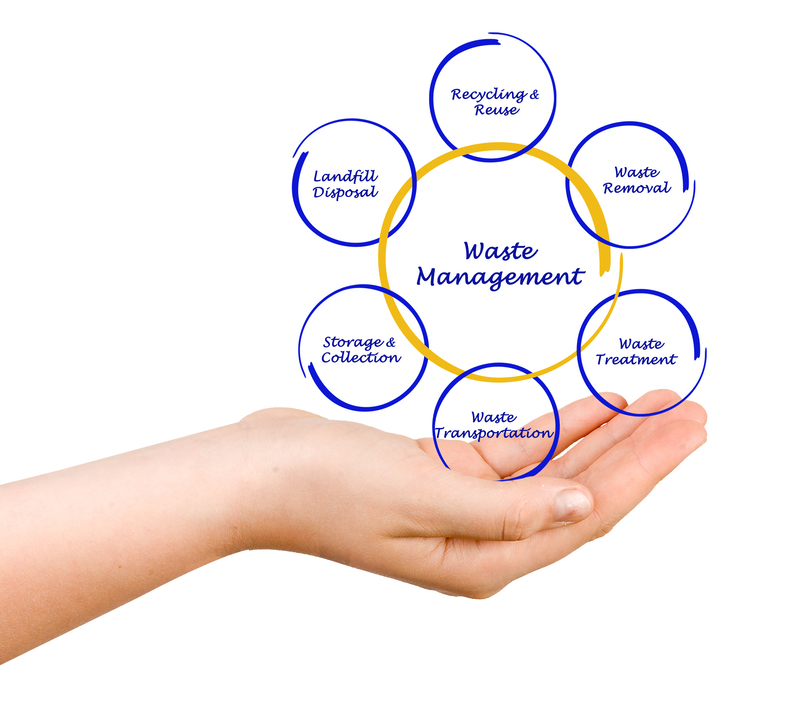Instilling Eco-Friendly Habits in Kids Through Recycling: The Building Blocks of a Greener Future
As the global demand for sustainability continues to rise, teaching children eco-friendly habits such as recycling has never been more crucial. Not only does recycling protect the environment, but it also equips young minds with lifelong skills for responsible living. Instilling eco-friendly habits in kids through recycling goes beyond sorting paper and plastics--it's about nurturing a mindset that appreciates and cares for our planet.

Why Is Teaching Kids About Recycling So Important?
The significance of recycling and green living extends beyond trash reduction. By introducing eco-friendly practices early in life, you set a foundation for environmental stewardship that can influence a child's actions and attitudes for decades.
- Protecting Natural Resources: Recycling reduces the need for raw materials, conserving natural habitats and species.
- Reducing Pollution: By properly sorting recyclables, kids help lower pollution in landfills and oceans.
- Creating Responsible Citizens: Eco-friendly habits promote responsibility, empathy, and global citizenship in children.
- Sparking Curiosity and Innovation: Learning about recycling inspires creativity and problem-solving skills as kids explore new ways to reuse items.
Practical Ways to Teach Kids to Recycle
Developing recycling habits for kids doesn't have to be overwhelming. In fact, the process can be fun, hands-on, and incredibly rewarding for the whole family.
Lead by Example: Be a Recycling Role Model
Children learn best by watching adults in action. Make it a point to separate your own waste into recycling bins at home. When you model eco-friendly behaviors, your kids are much more likely to adopt them naturally.
- Let your child watch you rinse cans, bottles, and jars before recycling.
- Explain what happens to recyclable materials after they leave your home.
- Use positive reinforcement and acknowledge your kids when they recycle correctly.
Make Recycling Interactive and Fun
Instilling eco-friendly habits in children is easiest when recycling feels like an enjoyable activity. Kids are naturally curious and love to engage their hands and minds.
- Set Up a Colorful Recycling Station: Use bins of different colors for paper, plastic, glass, and metal. Label them with pictures and words for easy understanding.
- Turn Sorting into a Game: Challenge your kids to find all recyclables in their lunchbox or around the house before the trash gets taken out.
- Create a Recycling Rewards Chart: Track your child's eco-friendly actions. Offer rewards for milestones--like a special outing or extra screen time.
Explain the Environmental Impact in Simple Terms
Understanding the "why" behind recycling is just as important as the "how." Use age-appropriate language to discuss:
- How trash can hurt animals, plants, and people when it's not disposed of responsibly.
- The journey a plastic bottle makes from use to recycling center, then to a new product.
- Benefits to the community, like cleaner parks and less air pollution.
Use visuals such as videos, storybooks, and infographics to reinforce these concepts. When children comprehend the lasting impact of their choices, they're more likely to maintain eco-friendly recycling habits for life.
Creative Recycling Activities for Kids
Make teaching sustainability memorable with hands-on projects and creative challenges. These activities instill earth-friendly habits and foster a positive relationship with the environment.
Home-Based Recycling Crafts
- Turn Cardboard Into Art: Collect cardboard boxes and tubes for painting, building, and crafting creative sculptures.
- DIY Bird Feeders: Use cleaned milk cartons and plastic bottles to create unique bird feeders for your backyard.
- Plant Pots from Containers: Old yogurt cups and cans can become fun planters for small herbs or flowers.
These projects highlight how items often seen as garbage can gain a new purpose with a bit of imagination--an essential principle in developing eco-conscious habits in kids.
Start a Family Recycling Challenge
- See which family member can collect the most recyclables in a week.
- Track how much waste the family diverts from landfill each month.
- Share your results on social media to encourage friends and family to participate.
Community Clean-Up Events
Participating in local clean-up projects or recycling drives helps children see the collective power of eco-friendly practices. Such experiences reinforce how individual efforts combine to make a significant difference.
- Join a local park clean-up day and teach children to collect recyclables separately.
- Participate in Earth Day activities at schools, libraries, or community centers.
- Volunteer as a family at a recycling center for a behind-the-scenes look at the recycling process.
Teaching the Three Rs: Reduce, Reuse, Recycle
While recycling is vital, it works best alongside reducing and reusing. Encourage kids to think critically about their consumption and the waste they generate.
- Reduce: Opt for items with minimal packaging, use reusable containers, and avoid single-use products.
- Reuse: Find new purposes for old clothes, toys, and containers before discarding them.
- Recycle: Properly sort and clean recyclables according to local guidelines.
By emphasizing all three principles, you help children understand their eco-friendly behaviors are interconnected parts of a sustainable lifestyle.
Addressing Common Recycling Questions with Kids
Kids are naturally curious and may have questions about the recycling process. Here's how to respond effectively:
- What Happens to My Recyclables?
Explain that recycled items are broken down and made into new products, like bottles, clothing, or playground equipment. - Why Can't Everything Be Recycled?
Discuss that some items, like certain plastics or greasy food wrappers, can damage recycling equipment or contaminate batches. Teach kids to check recycling symbols and follow community rules. - Is It Okay to Leave Lids On Containers?
Share the guidelines specific to your local recycling program. In general, items should be empty, clean, and dry for processing.
Clear answers help nurture a sense of responsibility and ownership over the recycling process, ensuring eco-friendly habits stick.
Incorporating Technology and Media
Leverage the power of digital tools to make recycling education engaging and interactive.
- Eco-Themed Apps: Download games and challenges focused on recycling and environmental care.
- Online Videos: Watch animated clips that illustrate the impact of recycling in fun, digestible ways.
- Interactive Quizzes: Let children test their knowledge and learn new facts about waste management.
Technology can supplement hands-on education, catering to different learning styles and ages.
Promoting Lasting Eco-Friendly Habits Beyond Recycling
Instilling a green mindset goes beyond sorting trash. Promote a holistic approach to sustainable living by encouraging habits such as:
- Saving Water: Turn off taps when brushing teeth and reuse water for plants.
- Reducing Energy Use: Teach kids to turn off lights and unplug devices when not in use.
- Composting: Set up a small compost bin for food scraps, introducing children to the concept of nutrient cycles.
- Eco-Friendly Transportation: Walk, bike, or use public transport where possible to lower carbon emissions.
These additional habits reinforce the importance of making environmentally conscious choices in every facet of life, building a comprehensive and lasting approach to sustainability.
Working With Schools and Communities
Schools and community organizations play a vital role in reinforcing eco-friendly practices for kids. Parents can partner with these institutions to support recycling education and activities:
- Work with school staff to organize recycling drives or eco-themed workshops.
- Advocate for recycling bins in classrooms, cafeterias, and playgrounds.
- Encourage project-based learning--like art contests using recycled materials or science projects about waste management.
- Connect with local organizations to sponsor field trips to recycling centers or landfills.
When children see their peers and teachers actively involved in green initiatives, recycling becomes a community norm rather than just a household rule.

Overcoming Challenges in Instilling Eco-Friendly Recycling Habits
Like any new routine, it can take time for kids to adopt consistent recycling and eco-friendly behaviors. Here are some tips for overcoming common hurdles:
- Lack of Understanding: Use simple language, visuals, and repetition to reinforce lessons about recycling.
- Lack of Interest: Relate recycling to your child's interests (crafting, competitions, nature, or technology).
- Forgetting to Recycle: Place recycling bins in visible, accessible spots and add reminder notes.
- Confusion About Rules: Regularly review what goes where, using guides with clear pictures and explanations.
Conclusion: Shaping Tomorrow's Environmental Leaders
Instilling eco-friendly habits in kids through recycling is an investment in the planet's future and in our children's sense of responsibility. By making recycling a natural part of daily life, encouraging curiosity, and providing positive feedback, parents, teachers, and communities can help children become lifelong stewards of the environment.
Remember, every can, bottle, and piece of paper recycled is a step towards a cleaner, healthier world. By starting early and nurturing a passion for sustainability, we empower our kids not just to recycle, but to think critically, innovate, and inspire others. The seeds you plant today will grow into a lush, green legacy for generations to come.
Take Action Today!
- Set up a home recycling station with your kids.
- Visit a local recycling center or participate in a community clean-up.
- Challenge your family to go a week with zero-waste lunches.
- Make eco-friendly choices a fun and rewarding part of your everyday lives!